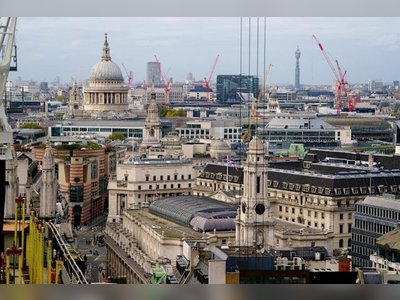0:00
0:00
Amnesty International Critiques UK's Predictive Policing Practices
Amnesty International's report 'Automated Racism' highlights concerns over predictive policing in the UK, alleging racial bias and discrimination.
Amnesty International has released a report titled 'Automated Racism,' criticizing the UK's use of predictive policing tools.
The report argues that these tools are unfair, dangerous, and discriminatory, suggesting they should be banned.
According to Amnesty, the data driving these predictive systems come from established police practices like stop and search, which disproportionately target Black individuals and often find no wrongdoing.
This reliance on biased data, the report claims, corrupts predictive crime systems intended to combat crime.
Predictive policing involves computer programs that use data and algorithms to estimate where crimes are most likely to occur.
Amnesty notes that of the 45 local forces across the UK, 32 have used geographic crime prediction, profiling, or risk-prediction tools, and 11 have used individual prediction, profiling, or risk-prediction tools.
The report states that these systems act as a modern form of racial profiling, reinforcing racism and discrimination in policing.
It highlights instances where predictive policing led to increased stop and search activities, particularly in Basildon, Essex, where Black individuals were stopped and searched almost 3.6 times more than white individuals.
In London, after the Metropolitan Police introduced predictive policing in Lambeth in 2020-21, the area had the second-highest volume of stop and search among all London boroughs.
The report also mentions a system used by Avon and Somerset police that assigns risk scores to individuals.
One individual, referred to as David, claimed to have been stopped 50 times, including after placing a sticker on a lamp-post, leading to post-traumatic stress disorder.
He stated, 'They made me feel like I don't have any rights at ....' Sacha Deshmukh, the ...stated that predictive policing has minimal or no effect on reducing crime.
He emphasized that the evidence of its effectiveness is lacking, while the evidence of its violation of fundamental rights is clear.
A spokesperson for the National Police Chiefs ...responded, stating that policing uses a wide range of data ...inform its response to tackling and ...
including concentrating resources in areas with the ....
They acknowledged the responsibility to balance tackling crime with building trust ...
communities, recognizing the detrimental impact that tools like stop and search can have, ...individuals.
The report argues that these tools are unfair, dangerous, and discriminatory, suggesting they should be banned.
According to Amnesty, the data driving these predictive systems come from established police practices like stop and search, which disproportionately target Black individuals and often find no wrongdoing.
This reliance on biased data, the report claims, corrupts predictive crime systems intended to combat crime.
Predictive policing involves computer programs that use data and algorithms to estimate where crimes are most likely to occur.
Amnesty notes that of the 45 local forces across the UK, 32 have used geographic crime prediction, profiling, or risk-prediction tools, and 11 have used individual prediction, profiling, or risk-prediction tools.
The report states that these systems act as a modern form of racial profiling, reinforcing racism and discrimination in policing.
It highlights instances where predictive policing led to increased stop and search activities, particularly in Basildon, Essex, where Black individuals were stopped and searched almost 3.6 times more than white individuals.
In London, after the Metropolitan Police introduced predictive policing in Lambeth in 2020-21, the area had the second-highest volume of stop and search among all London boroughs.
The report also mentions a system used by Avon and Somerset police that assigns risk scores to individuals.
One individual, referred to as David, claimed to have been stopped 50 times, including after placing a sticker on a lamp-post, leading to post-traumatic stress disorder.
He stated, 'They made me feel like I don't have any rights at ....' Sacha Deshmukh, the ...stated that predictive policing has minimal or no effect on reducing crime.
He emphasized that the evidence of its effectiveness is lacking, while the evidence of its violation of fundamental rights is clear.
A spokesperson for the National Police Chiefs ...responded, stating that policing uses a wide range of data ...inform its response to tackling and ...
including concentrating resources in areas with the ....
They acknowledged the responsibility to balance tackling crime with building trust ...
communities, recognizing the detrimental impact that tools like stop and search can have, ...individuals.











